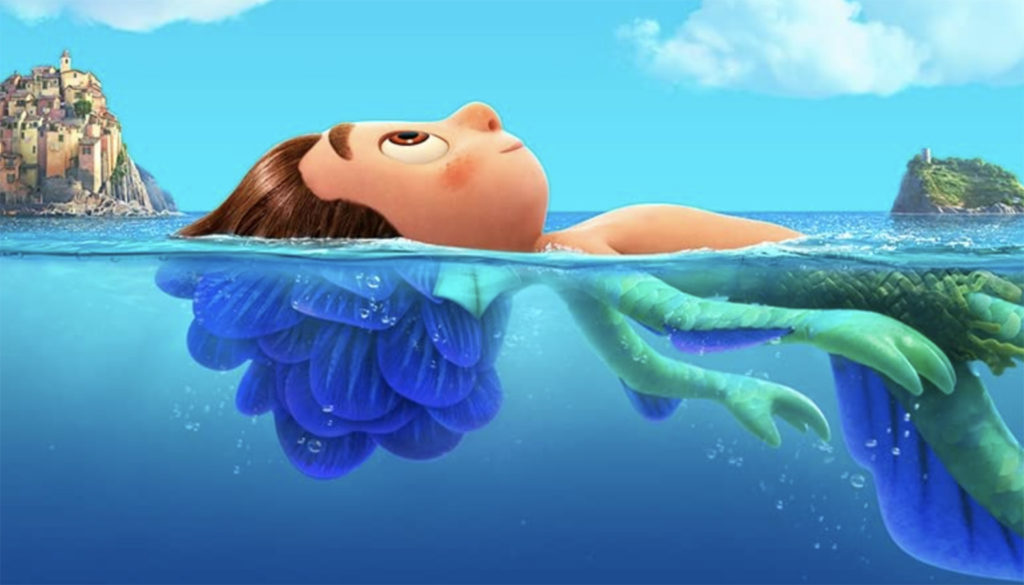Since it is demonstrably better to light one candle than curse the darkness, I come to shed some illumination on none other than Disney. Light seen in the current Disney tunnel is usually an oncoming train pulling carloads of agenda-driven content aimed at influencing little minds to think a certain way when they are bigger minds.
A parent – or in my case a grandparent – who does not vet the material on the Disney Channel before exposing those they have vowed to God to love and protect, is derelict in their duty. After a recent Saturday full of yard work, playing with trucks in the dirt, and finding families of “wormies,” it was time for my grandson to take a break … and me, too.
Some TV time was in order but I just could not manage the energy to watch “Cars 2” again. I scrolled through the Disney Channel universe and decided to take a gamble.
We found a 2021 Pixar animated feature called “Luca.” It is “The Little Mermaid” meets “Huckleberry Finn.” Luca is a happy, well-adjusted sea monster. He has two (one male and one female) loving parents. He is fairly conscientious about his under-the-sea chores, but things change when he discovers that on dry land, he becomes a human-looking boy.
This happens when he encounters another sea monster boy who is living quite the Huck Finn existence on land in the local Italian fishing village. There are no wizards or evil witches to cast a spell to make Luca human. He learns, from his newfound friend, that when a sea monster dries off he takes on human form. No “magic,” just simple sea monster biology.
Like Huck Finn and Tom Sawyer, Luca and his newfound friend, Alberto, set off on a dry land adventure free of adult supervision and spurred by wild dreams of grandeur that boys are wont to entertain. Disney used to be a master of this kind of material. It is now, in 2023, something rare but appreciated by grandparents who just can’t click on “Cars 2” for the 387th time.
There is strife. All good stories have that. As Luca and Alberto navigate their brave new dry world, Luca’s parents take to land to find their boy. Though Luca disobeys his parents’ warnings about going on dry land, his disobedience is more out of innocent curiosity than malice – and his parents only have his best interest at heart. In other words, one or both parents are not ogres or dumb as a bag of hammers; though their search for their son in human form themselves has some good comic moments.
Luca and Alberto may be computer-generated objects, but they act more like real boys than most characters in Disney’s more “progressive” offerings. The boys act and bond the way only boys do. I say that with some expertise as I once was a boy and have sons of my own and now a grandson. I am familiar with the species.
Like all boys, Luca and Alberto gravitate to danger. It is not so much that they do not think before they act – as when they take their DIY scooter made of wood down a steep cliff heading for rocks – but that they think in grand terms. The boys have absolute faith that they will win a triathlon and then purchase a real Vespa scooter to see the rest of what the dry world has to offer.
I’m writing about a cartoon where the lead character is a sea monster who turns into a boy when he is dry, but with a straight face, I believe this is one of the most “normal” movies to come out of the Disney Industrial Complex in a long time.
There is a lot of truth in this film. Luca and Alberto bond in a way real boys bond and not through a filter of current cultural motifs. Grandparents do circumvent parents every now and then (guilty). And friendships even among the best of friends can sometimes be strained to the breaking point.
Maybe it was an oversight or intentional, but most boys really are not that interested in big Broadway musical numbers and singing animals. Talking cars, yes, and boys being boys. And when the plot of Luca pivots on an act of self-sacrifice, I loosened my grip on the remote control and felt good about the lessons the charming film was imparting to boys everywhere.

